Students taught about spiking dangers in new campaign
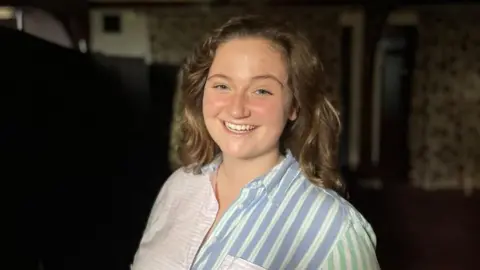 BBC
BBCStudents are being taught about the dangers of drink spiking using goggles that simulate how it might feel to be drugged.
Anti-drink spiking company CounterSpike was started after its co-founder was spiked at a festival.
Mark Ackred said he believes instances of spiking are rising, but that it is now often being used in robbery or by people who “think it is funny”.
The company has teamed up with the Royal Agricultural University (RAU) in Cirencester where students being taught how to stay safe from spiking took part in a silent disco on 29 October.
Student governor at the RAU, Alexandra Godfrey, 21, said: "I think spiking is something you are always thinking about especially as a woman."
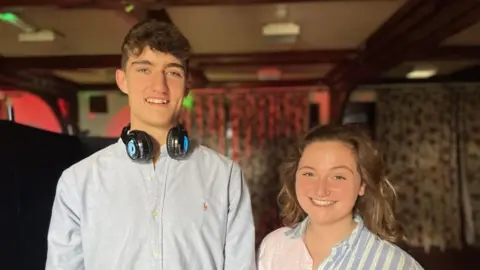
Miss Godfrey said: "I'll walk around with my hand covering my drink and I know other people have similar methods to keep themselves safe.
"A few years ago we had a big bout in Cirencester of spiking happening in pubs and the clubs in town."
She said it was something she "constantly thought about" when going out with friends but that the situation in Cirencester had improved.
"It is super safe in Cirencester... but when we go further afield that's definitely something I worry about. Bigger cities, bigger clubs, places people don't know," she added.
During the silent disco students were given facts, tips and information about spiking in their headphones.
They were also given kaleidoscope goggles to simulate how it might feel to be spiked and disorientated.
As well as the immersive training course for students, CounterSpike is rolling out a online course for venues and bars to do.
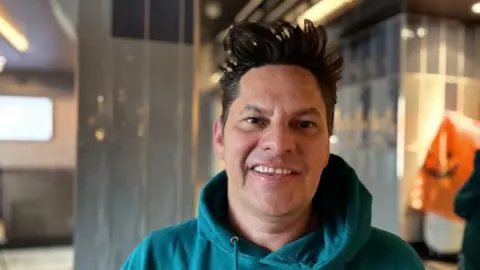
Mr Ackred, 47, co-founder of CounterSpike said he thinks instances of spiking are rising.
He said: "At CounterSpike we have a three pillar strategy - prevention, education and training.
"The problem of spiking has changed, it used to be perceived as the pre-cursor to a sexual offence.
"Actually now its much more about thinking its funny and people doing it to rob you."
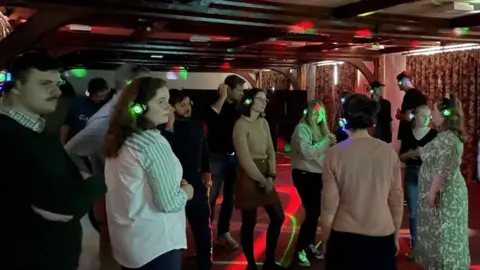
Mr Ackred said he had been spiked at a festival in Oxfordshire when he was with his children which inspired him and his co-founder to start CounterSpike.
He said: "All of a sudden I felt absolutely horrific and was incapacitated for about six hours which was scary both for me and for my children.
"Everyone's talking about it but not doing anything - we wanted to give control back to people."
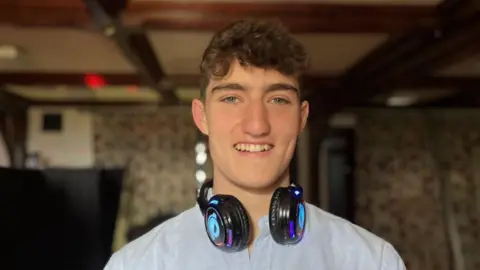
Matthew Harris, 21, a student at RAU, said: "You hear the horrible stories and think that's one in a million but actually when you start paying attention and looking a little bit deeper you see it happens really often.
"I think raising awareness is a great idea and doing something a bit fun with it too, I'm sure we've all sat through plenty of power points before and its nice to do something different."
Will Marsh, director of external communications at the RAU, said: "It is not something we have a specific problem with here in Cirencester and at the University but anything that can keep our students safe is something that we want to support."
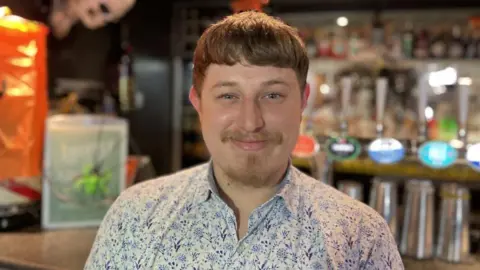
CounterSpike have also set up an accreditation system for bars and venues to do.
James Stone, 25, general manager at 17 Black, a popular bar for students in Cirencester, has been doing the course.
He said: "It's great because it helps bring more awareness to the issue at hand.
"In the general drinking culture nowadays spiking is till a major problem that needs to be tackled more in bars and clubs around the country."
Follow BBC Gloucestershire on Facebook, X and Instagram. Send your story ideas to us on email or via WhatsApp on 0800 313 4630.
